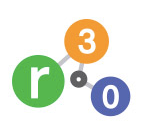The Sustainability Gap: What’s the difference between sustainability and incrementalism, and why does it matter?
By Ralph Thurm & Bill Baue
This is part 1 of a series highlighting the ‘burning questions’ of Boards and Sustainability Professionals why we need Reporting 3.0 and what it aims to deliver with its Blueprints on Reporting, Accounting, Data and Integral Business Model Design.
What’s the issue?
Sustainability is a simple concept — the ability to continue — that can be taken for granted until confronting its imminent disappearance. Here’s a quick history of the idea’s development:
- Three centuries ago, German mining official Hans Carl von Carlowitz coined the term “sustainability” after observing that firewood demand for ore smelting depleted forests faster than trees could replenish.
- Three decades ago, the Brundtland Report famously defined sustainability in the societal context as “development that meets the needs of the present without compromising the ability of future generations to meet their own needs” — intergenerational equity, in other words.
- A decade-and-a-half ago, the Global Reporting Initiative introduced the notion of “Sustainability Context” as “the performance of the organization in the context of the limits and demands placed on environmental or social resources at the sector, local, regional, or global level.”
Fast forward to the present:
- Deforestation outpaces reforestation, shrinking the vital carbon sink;
- Development ignores intergenerational equity; and
- Companies routinely overshoot the limits of environmental resources, and shortchange the demands of social resources.
We at Reporting 3.0 call this the “Sustainability Gap”(or the “Context Gap”). Empirical evidence confirms this Gap in the reporting realm: a 2017 Danish study of 40,000+ so-called sustainability reports over the decade-and-a-half starting in 2000 found that only 5% of reports mention ecological limits at all — and a mere 0.3% cite than context in discussing product development or corporate strategy. This study reveals the misalignment between what Limits to GrowthCo-Author Donella Meadows calls the “ultimate means”of natural capital and the “ultimate ends”of well-being.
Companies and investors recognize the problem, but their solutions — CSR (or corporate social responsibility) for companies, and ESG (or environmental, social, governance) for investors — amount to incremental improvement in the right direction, but at insufficient scale and pace (“too little, too late”). Alex Steffen calls this predatory delay — “the blocking or slowing of needed change, in order to make money off unsustainable, unjust systems in the meantime.” Reporting 3.0 Steering Board Member Brendan LeBlanc of EY puts it this way: “The only thing more dangerous than no progress is the illusion of progress.”
What can you do about it?
If you’re a sustainability professional, a first step is to report on the Sustainability Context of your organization’s impacts — even if the analysis shows you’re company is performing unsustainably. Of course, reporting is just the external expression of internal performance management. So the next step is to transform your performance — perhaps by setting Science-Based Targets for carbon and Context-Based Water Stewardship Goals, and follow the UN Guiding Principles on Human Rights. Of course, true reform cuts deeper, so you will likely need to explore your core business model to assess whether it respects a safe and just space operating space for humanity.
Stepping back, we at Reporting 3.0 recommend you start by looking at the bigger picture. Here are a few basic steps to get you started on this journey:
- Take the time to re-read ‚Our Common Future’, the report by the Brundtland Commission from March 1987, and build awareness of what once was the original concept of sustainable development. Do a gap analysis of how your own organization honors the original concepts — and how much got lost and why.
- Take the test to find out what ‚intra- and intergenerational equity’, together with the idea of generating wellbeing for all humans on this planet, are in any way recognized in your business model(s), strategies, and selected and reported data, either in dashboards or in sustainability reports.
- Assess the degree to which your ‚sustainability’ efforts are curing symptoms (e.g. climate change -> need to reduce emissions), or how much you address root causes. After all, curing symptoms leaves the underlying root causes unresolved, such that more symptoms will always emerge.
In sum, we conclude that there is no sustainable business in an unsustainable world, so companies that wish to be sustainable have to work not only at the level of their own organization’s sustainability, but also at the systems level.
What will you have achieved?
The above helps to build the understanding of own shortcomings, but also potentials of ‚true sustainability’ when you choose to recognize impacts on individuals (nano level), micro level (organizational level), meso level (industry, habitat or portfolio level) and macro level (economic system design). You learn that the often quoted ‚invisible hand’ of the market needs vision, values and norms as an ‚invisible band’.
What question will we discuss next time?
Are the SDGs, the Paris Climate Treaties and the TCFD enough to break through ‘predatory delay’ in corporate strategy? How to create an ambition level that is in line with the magnitude of the challenges ahead of us? See part 2 of our series here.
Please add your feedback, the authors Ralph Thurm and Bill Baue of Reporting 3.0 will look at all responses. And don’t forget to ‘wave’ if you liked this article. It helps us to better understand what resonated well.
[Context of this series: The sum of these articles form the basis of an Implementation Guide that summarizes the total value of Reporting 3.0 in implementing a future-ready sustainability strategy and disclosure approach, in line with the idea of a Green, Inclusive and Open Economy. By posting these articles here Reporting 3.0 seeks feedback in the writing process of the final document, to be released as Blueprint 5 at the 5th International Reporting 3.0 Conference in Amsterdam, The Netherlands, on June 12/13, hosted by KPMG, see www.2018.reporting.org]
